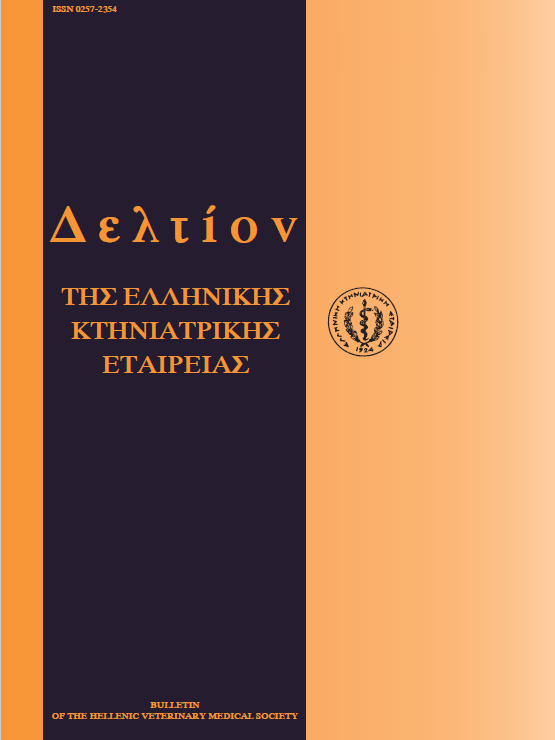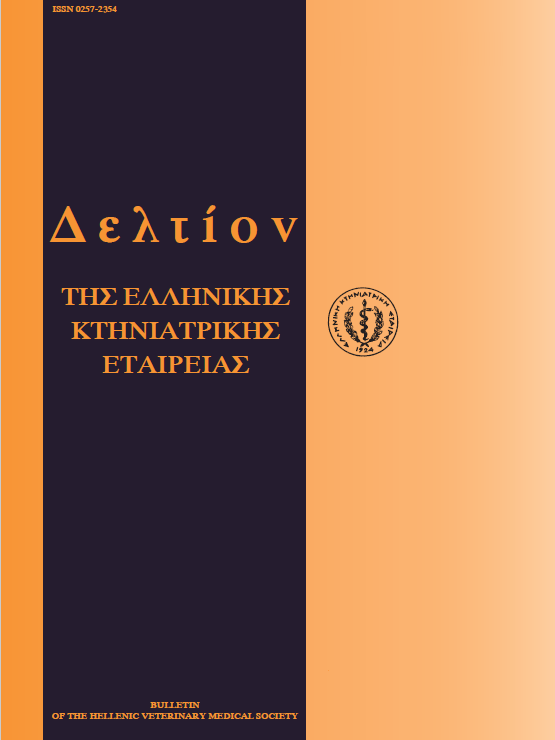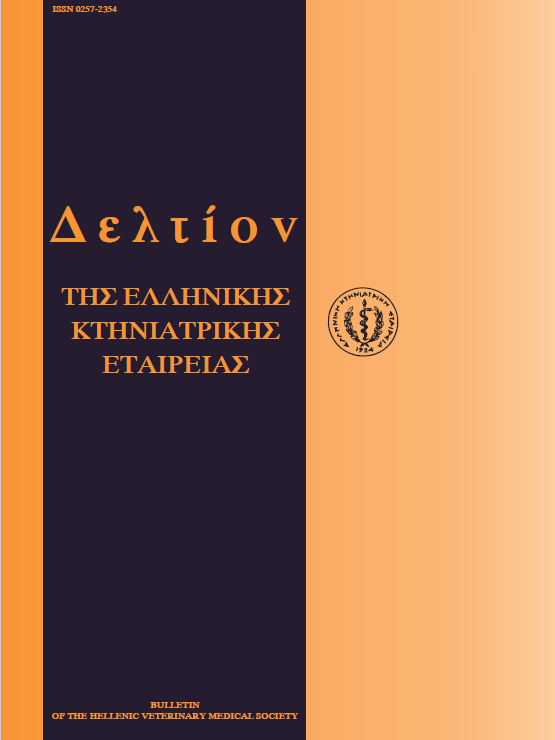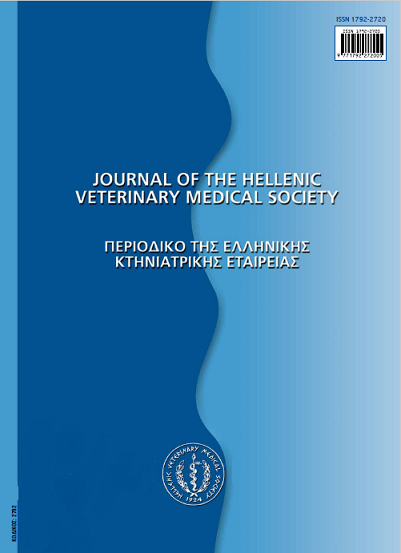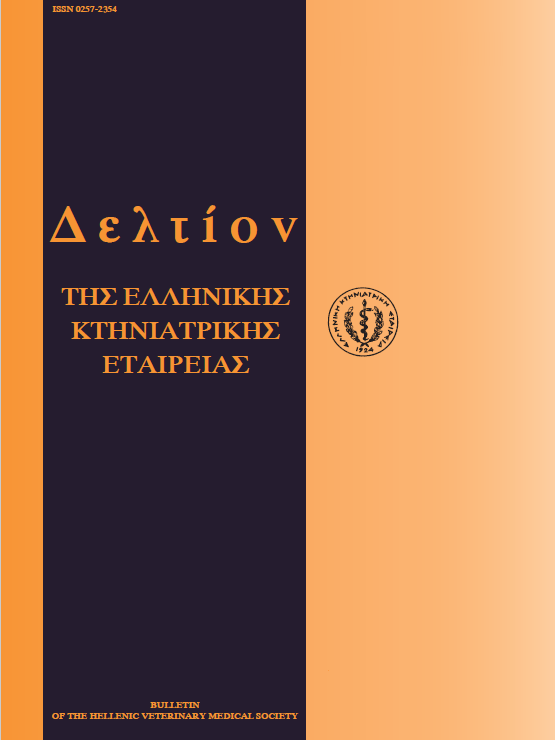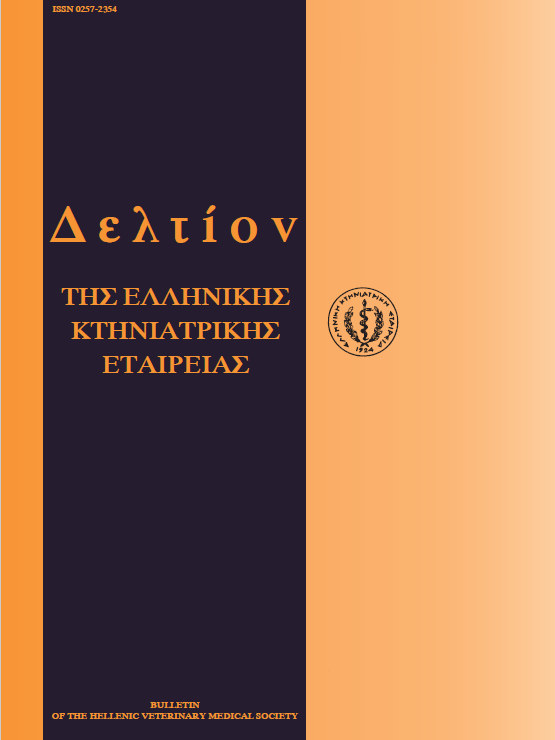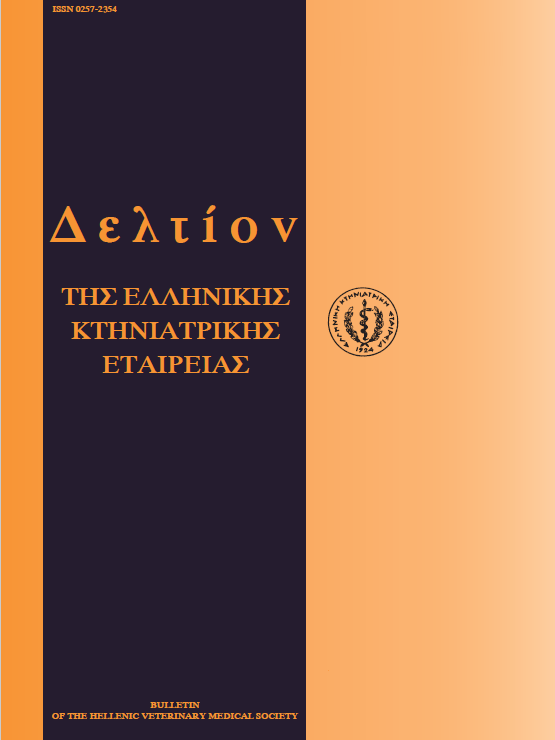The presence of Haemoproteus spp in wild birds in Greece
Аннотация
Blood smears from 541 birds of 11 different species, killed in 4 continuous hunting periods (1977-1980), at Macedonian region, were examined. One hundred and six were found to be infected with the protozoon Haemoproteus. A higher infection rate was observed in the orphean warblers (Sylvia hortensis 58,3%) and, in descending order, in the turtle-doves {Streptopelia turtur 33,3%), the partridges (Perdix per dix 33,3%), the goldfinches (Carduelis carduelis 30,4%), the greenfinche orioles (Carduelis chloriis 29,5%), the house sparrows (Passer domesticus 27,6%), the blackbirds (Turdus merula 15%), the quails (Coturnix coturnix 7,62%), and the CettPs warblers (Cettia cetti 7,1%). The parasite was not found in blood smears from song thrushes (Turdus philomelos) and reavings (Turdus iliacus).
Article Details
- Как цитировать
-
THEODORIDIS (Ι. ΘΕΟΔΩΡΙΔΗΣ) Y., ALEXAKIS (ΑΛΕΞΑΚΗΣ Α.) A., & MATARA (ΜΑΤΑΡΑ Χ.) C. (2018). The presence of Haemoproteus spp in wild birds in Greece. Journal of the Hellenic Veterinary Medical Society, 49(4), 307–310. https://doi.org/10.12681/jhvms.15787
- Выпуск
- Том 49 № 4 (1998)
- Раздел
- Research Articles

Это произведение доступно по лицензии Creative Commons «Attribution-NonCommercial» («Атрибуция — Некоммерческое использование») 4.0 Всемирная.
Authors who publish with this journal agree to the following terms:
· Authors retain copyright and grant the journal right of first publication with the work simultaneously licensed under a Creative Commons Attribution Non-Commercial License that allows others to share the work with an acknowledgement of the work's authorship and initial publication in this journal.
· Authors are able to enter into separate, additional contractual arrangements for the non-exclusive distribution of the journal's published version of the work (e.g. post it to an institutional repository or publish it in a book), with an acknowledgement of its initial publication in this journal.
· Authors are permitted and encouraged to post their work online (preferably in institutional repositories or on their website) prior to and during the submission process, as it can lead to productive exchanges, as well as earlier and greater citation of published work.

